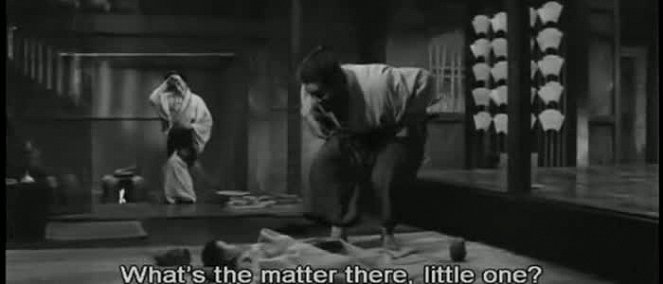Streaming (1)
Sinopsis(1)
Japón, siglo XVII. Tras la guerra civil, muchos samuráis no pueden soportar el deshonor y la agonía de la pobreza. El veterano Hanshiro Tsugumo es uno de ellos. Con la intención de acabar sus días con honor, Hanshiro se dirige a la casa del clan Iyi para solicitar el suicidio a través del ritual sagrado del Harakiri. Mientras espera, cuenta su trágica historia y su asombrosa vinculación con un joven samurái llamado Motome. La sorprendente narración de Hanshiro provoca un giro inesperado en los acontecimientos. (A Contracorriente Films)
(más)Reseñas (2)
Una historia dramática brillantemente estructurada sobre el honor, la venganza y los valores morales, que dosifica con precisión la información al espectador para que el puzzle de la trama encaje perfectamente en el final. Está claro desde el principio que el protagonista no entraría en la boca del lobo sin un plan premeditado, y como resulta después, todo va como un reloj y el espectador sigue muy sorprendido. Un espectáculo muy impresionante con algunas peleas de samuráis icónicas.
()
An open (not only the realistic depiction of the titular act) criticism of relationships in Japanese society at the end of the Edo era. Starving Ronin commit harakiri, the women suffer in silence, children die early. Poverty, pain, hopelessness. Kobayashi can elicit strong emotions using minimal formalistic means. Of all camera movements, he gives priority to dolly shots. And the characters stand or (more frequently) sit, and he doesn’t need to raise or lower the camera thanks to the well-chosen initial placement. Not only do we see what is necessary, the placement of the characters in the space also corresponds to their social status. The film is therefore a joy to watch even if you are not interested in the story or the unusual way it is told (flashbacks clarifying other flashbacks). The predominant part of Harakiri comprises dialogue scenes which, thanks to the directing and the music by Tôru Takemicu (who collaborated with, among others, the avantgarde director Hiroshi Teshigahara), are just as thrilling as the lengthy sword fights in the final minutes. If you let yourself be carried away by this film, you definitely will not stay with it only because of those. 85%
()

